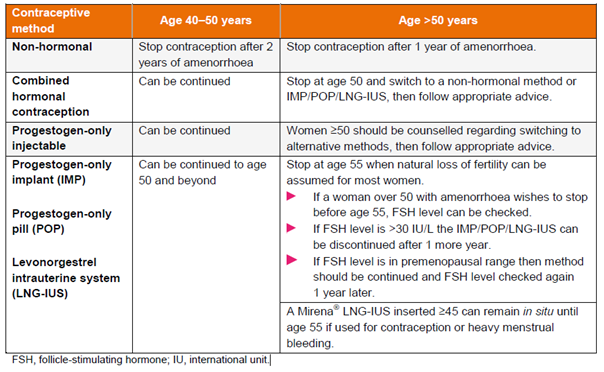MENOPAUSE REFERRALS AND ADVICE QUERIES SHOULD BE DIRECTED TO THE MENOPAUSE CLINIC AT CHALMERS VIA SCI GATEWAY.
THE LABORATORY INVESTIGATION OF PERI/MENOPAUSE AND ASSESSING CONTRACEPTIVE NEEDS
The use of FSH to diagnose peri/menopause.
FSH should be considered to diagnose peri/menopause in;
- Women 40-45 years with menopausal symptoms and a change in menstrual cycle.
- Women < 40 years in whom premature menopause is suspected.
FSH, LH and oestradiol tests should NOT be used in the investigation of menopause in;
- Women over 45 years.
- Women using combined oestrogen and progestogen contraception
- An FSH of <30 nmol/L does not exclude peri-menopause. Levels can fluctuate greatly during the peri-menopausal period.
- A single raised FSH level (> 30 nmol/L) indicates a degree of ovarian insufficiency but the clinical picture of symptoms and menstrual pattern will vary for each individual woman. There is no need to repeat this test.
- In otherwise healthy women over 45 years who have menopausal symptoms and menstrual irregularity (or just symptoms in the absence of a uterus), or amenorrhoea for more than a year, management is not altered by carrying out an FSH test. By not testing these women we reduce the use of laboratory and phlebotomy resources, follow up consultation to discuss the result and limit delay in starting treatment (where required).
The use of FSH in assessing contraceptive needs.
- In women who are still menstruating or have been amenorrhoeic for less than a year (or 2 years if less than 50) an FSH of >30 nmol/L should not be used as a guide to stopping contraception immediately.
- Women less than 50 years should, in general, continue contraception to age 50 years then follow the advice below.
- Women 50 years or over taking combined hormonal contraception who wish to consider stopping contraception should switch to the progestogen-only pill (POP) for at least 6 weeks. Then follow advice for POP as below.
- Women 50 years or over who are amenorrhoeic and taking the POP/have an implant or a Mirena fitted who wish to consider stopping contraception should have an FSH measured.
-If the result is >30 nmol/L, continue contraception for 1 year and then stop (there is no need to repeat this test).
-If the result is <30 nmol/L, continue with contraception and recheck FSH after 1 year. - If a woman is using depot medroxyprogesterone acetate (DMPA), this may suppress FSH levels. An FSH of >30 nmol/L can be confidently attributed to peri-menopause, however a result of <30 nmol/L cannot exclude it. The optimum time to measure FSH levels in a woman using DMPA is just before a repeat DMPA is administered.
- Women over 55 years can stop contraception, natural loss of fertility can be assumed for most women.

Table taken from FSRH Guideline 20172.
- Nice guidance (ng23) Menopause: diagnosis and management NICE November 2015
- FSRH guidance contraception for women aged over 40 years FSRH Clinical Effectiveness Unit. Updated August 2017













